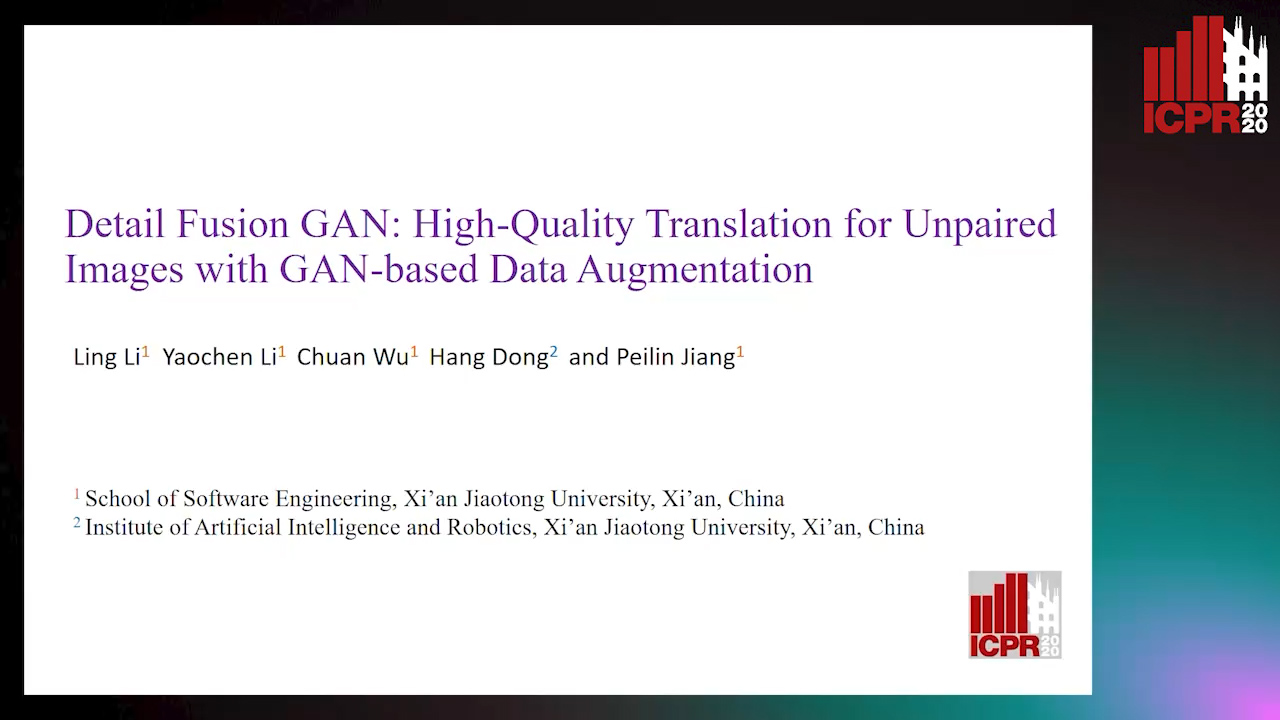Yaochen Li
Papers from this author
Detail Fusion GAN: High-Quality Translation for Unpaired Images with GAN-Based Data Augmentation
Ling Li, Yaochen Li, Chuan Wu, Hang Dong, Peilin Jiang, Fei Wang

Auto-TLDR; Data Augmentation with GAN-based Generative Adversarial Network
Abstract Slides Poster Similar
Meta Generalized Network for Few-Shot Classification
Wei Wu, Shanmin Pang, Zhiqiang Tian, Yaochen Li

Auto-TLDR; Meta Generalized Network for Few-Shot Classification